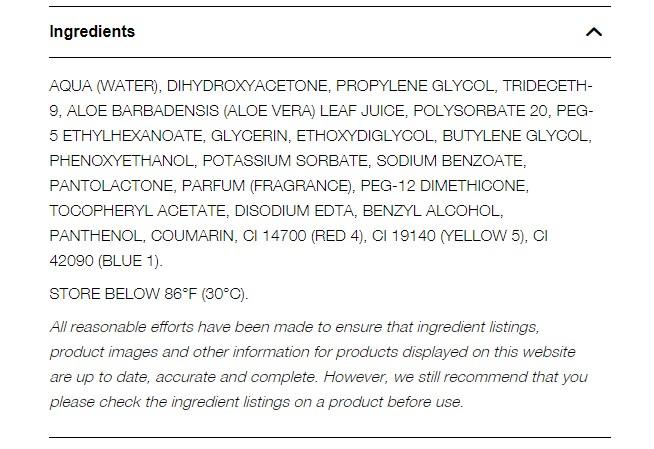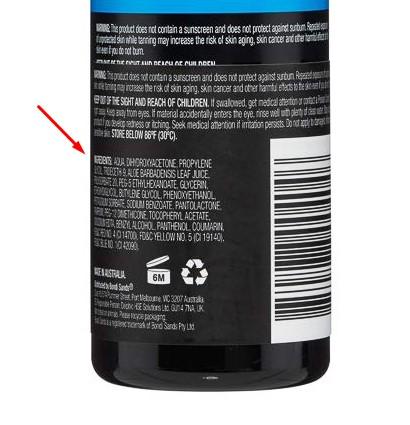When trying out different products and experimenting with different formulas, you may accumulate a large range of self-tanners over time. If you have a big collection of these products and some have been there for ages, you may be wondering ‘do self-tanners go out of date?’.
Does self-tanner go out of date?
Yes, self-tanner does go out of date after a certain amount of time. There are various chemicals and other ingredients inside it which all expire eventually, so the self-tanner is no longer like it used to be. There are some ways to tell if a self-tanner is out of date.
In general, most self-tanners have a shelf life of about one year, so you should only really keep self-tanners one year after opening them. It is believed that, as with many cosmetics, the expiry date is from the first time you opened the product, not when you bought it, as it didn’t react with air until you opened it. If you’re unsure when your self-tanner should go out of date, there are other signs of this.
The ingredients used in self-tanners vary from product to product, but the main one found in most tanning products is dihydroxyacetone (DHA). If you have ever experienced self-tanner having a bad smell, this comes from the reaction of DHA with your skin. Like many ingredients, this can go out of date.
When DHA expires, it usually just gradually loses its pigment when reacting with the skin, so your tan will be lighter and lighter the longer you keep it.
There are other chemicals which are used in lots of self-tanners called preservatives. These are responsible for maintaining the shelf life of the self-tanner, but eventually wear out. This is what results in the other ingredients expiring, as there’s nothing to keep them going.
The main difference you’ll notice when using an expired self-tanner is probably the consistency and the formula. Usually, the oils and other ingredients will separate, and it will either go very watery or thick and lumpy. If this has happened to your self-tanner, you’ll definitely notice it.
You may also notice the smell of the product has changed. This can be hard to judge, as many self-tanners smell when you apply them anyway but, if the product smells different from inside the bottle, it’s probably expired.
What if I try to use an expired self-tanner?
So, we’ve established that self-tanners can expire, but what happens if you try to use them beyond their expiry date? It isn’t recommended that you use a self-tanner which is out of date, as the expiry date is obviously there for a reason.
Unlike food and some cosmetics, an expired self-tanner isn’t harmful and shouldn’t cause a reaction. Although the ingredient varies from brand to brand and product to product, a high-quality self-tanner should contain safe, non-toxic ingredients which should stay that way, even when expired.

Nevertheless, you should perform a patch test 24 hours before using a self-tanner which you think may be out of date. This can help you to see whether or not it is out of date, as it’s easiest to judge this when the product is on the skin itself. You will also be able to see if your skin reacts to the self-tanner, without doing so on your entire body.
If you try to apply the self-tanner, you may find it doesn’t spread or blend properly, or that it has a worse consistency. As mentioned, the pigment may also be less visible and is less likely to last like the product normally would. Basically, the self-tanner won’t perform as it normally would and you probably won’t get the results you hope for.
Is it safe to use an expired self-tanner?
As mentioned, self-tanners don’t contain toxic ingredients, so, even when expired, they shouldn’t cause any harm. Nevertheless, you should probably avoid using an expired self-tanner, as the expiry date is there for a reason.
However, some self-tanners may contain ingredients which make them gentler to the skin, and, as a self-tanner expires, all of the ingredients expire at different times. There is a possibility that you could experience a small reaction or irritation as a result of this. If this does occur, it’s best to wash off the product immediately, and it’s best to dispose of the bottle.
The rash or irritation should go away after a while, and you can use specific cream or treatment to help this.
On the other hand, you’ll most likely find that the only differences are in the performance and texture, but not safety. To stay safe, either avoid using an old self-tanner altogether or perform a patch test on a small area of skin as described before to determine how safe it is to use.
Final thoughts
In short, yes – self-tanners do have an expiry date, and you should keep that in mind when using them. Although there aren’t any health threats to using an expired self-tanner, it’s a waste of your time. Avoid collecting lots of self-tanners which you won’t use as this will be a waste of your money.



